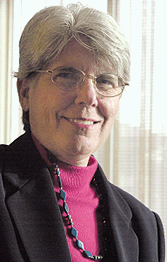Tobacco and Technical Assistance Consortium
But others used settlement funds to finance public schools, elder care, streets and sidewalks, and balance budgets. Many states were genuinely puzzled about how best to spend the settlement funds. Should they help tobacco farmers find alternate crops? Establish nicotine addiction centers? Pay for indigent health care? Launch anti-smoking ad campaigns? Legislators, governors, and public health workers wanted to know which efforts showed measurable results and how to duplicate them. The CDC and the American Cancer Society were deluged with calls. Last summer, the American Cancer Society, the Robert Wood Johnson Foundation, and the American Legacy Foundation—the repository for the tobacco settlement money—chose the Rollins School of Public Health to serve as TTAC’s academic home. The center will be funded with $15.3 million in grants from the foundations over the next three years. TTAC will consult with states on the nuts and bolts of effective strategies to reduce tobacco use, using proven programs as models. For example, with funds from its successful 1997 lawsuit against the industry, Florida launched the “truth” campaign, an edgy, anti-smoking ad campaign aimed at teen-agers. In two years, smoking rates dipped by 47% in middle-school students and 30% in high schoolers. Niemeyer, who was chief of the program services branch of the CDC’s Office on Smoking and Health from 1994 to 2001, is well acquainted with these success stories. He helped compile the CDC guide “Best Practices for Comprehensive Tobacco Control Programs.” “Dearell has vast experience with tobacco as a public health problem,” says Kathleen Miner, principal investigator for TTAC and associate dean for applied public health at RSPH. “He helped craft and lead California's strategies to prevent and reduce tobacco use, through the increase of the tobacco tax, school curriculum programs, and non-smoking policies for restaurants and workplaces. He knows the subject, he knows the players, he knows the strategies, and he knows the pitfalls.” TTAC plans to collaborate with faculty members like Michelle Kegler, Ken Resnicow, and other faculty who have studied tobacco control issues. But the main effort will involve training state and local public health workers in tobacco prevention. This expertise is sorely needed, according to a CDC needs assessment of state health departments that found a “very thin layer of expertise and skilled individuals at the state or local level in tobacco control.” In most states, as few as five to 10 people were employed to conduct tobacco control programs, and almost all local efforts relied on volunteers. “States have had fairly limited budgets for tobacco control, so they need a lot of assistance in ramping up their programs,’’ says Ron H. Todd, director of tobacco control for the American Cancer Society. “TTAC really augments what we do.”
Making Smoking History
Spring
2002 Issue |
Dean's Message | In
Brief | Innocence Lost | Copyright © Emory University, 2002. All Rights Reserved. Send comments to hsnews@emory.edu. |
